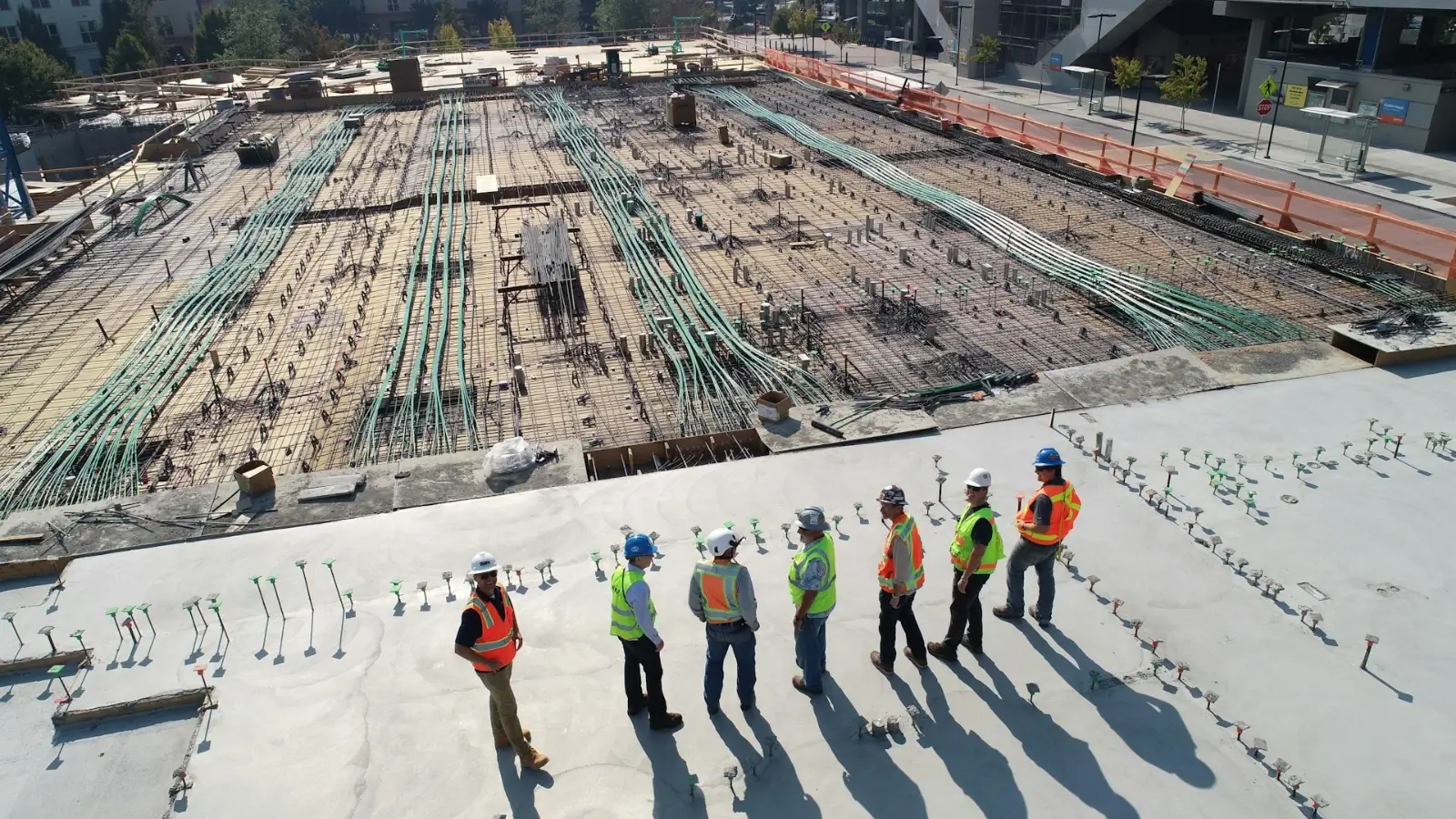In the competitive world of construction, launching a new business can feel daunting. With rising material costs, labor shortages, and tight project timelines, success often hinges on efficiency from day one. One key strategy to accelerate growth is mastering the art of faster bidding.
By streamlining your bidding process, you can secure more projects, build a strong portfolio quickly, and establish a reputation for reliability. This article outlines essential steps to start your construction business while emphasizing bidding tactics that save time and boost your win rate.
Step 1: Research the Market and Craft a Solid Business Plan
Before breaking ground on your first project, thorough market research is crucial. Identify local demand—whether it's residential renovations, commercial builds, or infrastructure work—and analyze competitors. Tools like industry reports and local economic data can help pinpoint opportunities.
- Market Analysis Deep Dive: Start by examining local building permits issued over the past three years to identify growth trends. Visit construction sites in your area to observe which contractors are consistently busy and what types of projects dominate the landscape. Interview suppliers about market conditions and payment terms, as they often have insider knowledge about which contractors are thriving or struggling. Consider seasonal fluctuations—residential work may peak in spring and summer, while commercial projects often follow fiscal year cycles.
- Competitive Intelligence: Create detailed profiles of your top five competitors, including their typical project sizes, client types, and apparent profit margins based on public bid results. Study their marketing materials, website messaging, and customer reviews to identify gaps you could fill. Pay attention to their response times for quotes and proposals, as this will become your benchmark for faster bidding.
Once researched, develop a comprehensive business plan. This document should outline your services, target clients, financial projections, and growth strategies. Include a section on bidding efficiency, as faster bids can directly impact revenue. For instance, aiming for a bid-hit ratio of around 4:1 (winning one out of every four bids) is a realistic benchmark for private sector work. A well-structured plan not only guides your operations but also attracts investors or loans.
- Financial Projections for Bidding: Factor in the cost of bid preparation when calculating project profitability. Estimate that each bid will cost between $500-$2,000 in labor and materials depending on project complexity. Build a monthly bidding budget that accounts for proposal printing, site visits, and estimator time. Track these costs religiously to ensure your faster bidding approach doesn't erode profit margins.
Step 2: Handle Legal and Operational Setup
Registering your business is non-negotiable. You can use legal services for convenience. Choose an entity like an LLC for liability protection, and secure necessary licenses, permits, bonds, and insurance specific to construction. In many regions, this includes contractor licenses, workers' compensation, and general liability coverage.
- Insurance and Bonding Strategy: Beyond basic coverage, consider umbrella policies that protect against large claims. Establish relationships with multiple bonding companies early, as capacity limits could restrict your bidding on larger projects later. Maintain excellent credit scores for both personal and business accounts, as this directly impacts bonding costs and availability.
- Technology Infrastructure: Invest in essential tools and equipment early, but prioritize digital solutions for bidding. Construction estimating software can automate calculations, reducing bid preparation time from days to hours. Set up cloud-based file storage systems that allow real-time collaboration between estimators, project managers, and field teams. Implement customer relationship management (CRM) software to track lead sources, bid outcomes, and client communication history.
Secure funding through small business loans, personal savings, or partnerships to cover startup costs like vehicles and initial marketing.
Step 3: Build a Strong Team and Network
Hire skilled professionals who align with your vision—start with a core team of project managers, estimators, and field workers. Focus on reliability and expertise to ensure projects run smoothly.
- Team Building for Speed: When hiring estimators, prioritize candidates with experience in your target market segments. An estimator familiar with local labor rates, material suppliers, and permit processes can complete bids 30-50% faster than someone learning on the job. Cross-train team members so multiple people can handle estimation duties, preventing bottlenecks when bid deadlines coincide.
- Subcontractor Network Development: Networking is vital for bidding success. Build relationships with suppliers, subcontractors, and general contractors to access better leads. Use a database of pre-qualified subcontractors organized by specialty and region to speed up bid assembly. Negotiate standing agreements with key subs that include standardized pricing for common tasks, eliminating the need to solicit multiple quotes for routine work.
- Industry Relationships: Attend industry events or join associations to uncover bid opportunities early. Develop relationships with architects and engineers who can provide advance notice of upcoming projects. Consider joining plan rooms or digital bid platforms where you can access project documents quickly and track competitor activity.
Step 4: Implement Strategies for Faster Bidding
Bidding faster isn't about cutting corners—it's about smart processes. Here's how to optimize:
- Use Bid Templates and Software: Standardize your bids with customizable templates that include scopes, costs, and timelines. AI and digital platforms like contractor bidding software integrate with project management tools for real-time updates, ensuring accuracy and speed.
- Advanced Template Systems: Develop modular bid sections that can be quickly assembled based on project type. Create standardized language for common exclusions, assumptions, and terms that protect your interests while speeding proposal creation. Maintain a library of detailed scope descriptions for typical construction activities that can be copied and modified rather than written from scratch.
- Focus on Niche Projects: Bid selectively on jobs that match your strengths to improve win rates. Avoid overbidding on unfamiliar work; instead, target repeat business opportunities where relationships give you an edge.
- Streamline Estimation: Break down bids into phases—solicitation, estimation, submission, and selection. Use checklists for each stage to avoid oversights, and leverage data from past projects for quicker cost assessments.
- Estimation Workflow Optimization: Create standardized take-off procedures that reduce measurement time. Use digital plan viewing software that allows quick quantity calculations and markup sharing between team members. Maintain historical cost databases organized by project type, location, and date to enable rapid cost modeling for similar future projects.
- Digitize Your Workflow: Adopt cloud-based tools for collaboration, allowing teams to work on bids simultaneously. This can reduce turnaround time and minimize errors.
- Track and Analyze Bids: Monitor your bid-hit ratio and adjust strategies. Aim to win more by focusing on high-quality leads and building strong owner connections.
By bidding faster, you can submit more proposals without sacrificing quality, increasing your chances of landing contracts early in your business journey.
Step 5: Market Your Business and Manage Growth
Get the word out through a professional website, social media, and local advertising. Highlight your efficient bidding as a unique selling point—clients value quick, competitive quotes.
- Marketing Your Speed Advantage: Develop case studies showing how your fast bidding helped clients accelerate project timelines. Create marketing materials that emphasize your typical response time for quotes and proposals. Consider offering expedited bidding services at premium rates for urgent projects, turning your speed into a profit center.
As projects roll in, manage cash flow meticulously and invest in growth, like training or additional software. Track metrics such as project completion rates and client satisfaction to refine your approach.
- Growth Management: Establish clear criteria for when to hire additional estimators or expand into new markets. Monitor your bid pipeline constantly to ensure you're maintaining adequate proposal volume without overwhelming your team. Implement project profitability tracking to identify which types of work generate the best returns on your bidding investment.
Conclusion
Starting a construction business requires grit, planning, and innovation. By prioritizing faster bidding through technology, relationships, and streamlined processes, you can gain a competitive edge and propel your company forward. Remember, success builds one project at a time—start smart, bid fast, and watch your business thrive in 2025 and beyond. If you're ready to launch, consult local resources or mentors to tailor these steps to your market.
















